Happy Wednesday! Construction is set to begin this year on a residential apartment complex in Los Angeles that will sit atop a Costco—the first such development for the retail giant.
Amenities will include a rooftop pool, a fitness center, and convenient access to the best, inflation-proof hot dog combo in the country.
Quick Hits: Today’s Top Stories
- At least three wildfires forced 30,000 people to evacuate neighborhoods west of downtown Los Angeles and along the Pacific Coast Highway on Tuesday after spreading with ferocity. By late Tuesday the blazes had consumed more than 3,000 acres with no signs of stopping as high winds were expected to continue into Wednesday. At one point gusts reached nearly 100 mph Tuesday night. California officials said more than 13,000 structures were threatened by the fires, and California Gov. Gavin Newsom said early Wednesday that more than 1,400 firefighters were battling the blazes.
- The State Department said Tuesday that the Sudanese Rapid Support Forces (RSF) paramilitary group and allied militias fighting in the country’s ongoing civil war are committing genocide. “The RSF and allied militias have systematically murdered men and boys—even infants—on an ethnic basis, and deliberately targeted women and girls from certain ethnic groups for rape and other forms of brutal sexual violence,” Secretary of State Anthony Blinken said in a statement announcing the genocide determination and accompanying sanctions on RSF leader Mohamed Hamdan “Hemedti” Dagalo and seven RSF-owned companies based in the United Arab Emirates. The State Department had previously assessed that the RSF had committed crimes against humanity and ethnic cleansing and that both the RSF and its belligerent, the Sudanese Armed Forces, had committed war crimes.
- The Treasury Department on Tuesday sanctioned Antal Rogán—a senior official in charge of Hungarian Prime Minister Victor Orban’s Cabinet office—for corruption, alleging Rogán manipulated the distribution of public contracts to “enrich himself and those loyal to his party” and “orchestrated schemes” enabling himself and his allies to reap the benefits from certain economic sectors. In a rare action targeting a sitting minister of a NATO ally, the sanctions freeze Rogán’s assets in the United States and prohibit U.S. entities, including banks, from doing business with him. Hungary’s foreign minister condemned the sanctions, pledging to “take the necessary legal steps” after President-elect Donald Trump’s inauguration.
- A 7.1 magnitude earthquake struck Tibet on Tuesday in an area near the Nepalese border and Mount Everest, killing at least 126 people and injuring 188 more. Rescue efforts remain ongoing to find survivors trapped under debris from more than 1,000 buildings damaged or destroyed in the quake.
- Indonesia joined the BRICS bloc of developing nations on Monday, becoming the coalition’s 10th full member. BRICS—founded by Brazil, Russia, India, and China—has positioned itself as an alternative to the G7, opposing Western political and economic dominance. Indonesia is Southeast Asia’s largest economy and the latest addition to the bloc after Iran, Egypt, Ethiopia, and the United Arab Emirates became members last year.
- The Minneapolis City Council approved a federal consent decree on Monday with the Justice Department to reform the Minneapolis Police Department (MPD) more than four years after George Floyd was murdered by then-police officer Derek Chauvin. The 170-page agreement stipulates a plethora of reforms addressing racial discrimination, the use of excessive force, and officer accountability. Some of the measures mirror changes the city made in the wake of Floyd’s killing and as part of a settlement with the Minnesota Department of Human Rights. The implementation of the federal agreement, if approved by a federal judge, will be overseen by a court-appointed independent monitor. The consent decree followed a damning Justice Department report released in June 2023 that found widespread patterns of discrimination and excessive force in the police department. Despite agreeing to the decree, the city and the MPD still “do not concede the allegations in the report.”
- U.S. District Judge Aileen Cannon on Tuesday temporarily blocked special counsel Jack Smith from publicly releasing his final report on his investigations into Donald Trump. Two of Trump’s former co-defendants in the federal classified documents case filed emergency motions to block the report with both Cannon and the 11th Circuit Court of Appeals—Cannon dismissed the case last summer, but Smith has continued his appeal of the dismissal as it applies to the co-defendants. Cannon’s Tuesday order bars the Justice Department from releasing the report until three days after the appeals court rules on the issue. Trump’s legal team has also been fighting the report’s public release, sending a letter on Monday to Attorney General Merrick Garland demanding he block the report’s release.
- Jean-Marie Le Pen, founder of the French far-right party the National Front, died Tuesday at age 96. Le Pen was a firebrand in French politics for decades known for his nativist and antisemitic views. His daughter Marine Le Pen took control of his party—renamed the National Rally in 2018—and expelled him in 2015 as part of an effort to distance the movement from some of his rhetoric and positions. Le Pen’s health had suffered in recent years following multiple heart attacks and a stroke.
An Iranian Nuclear Crisis
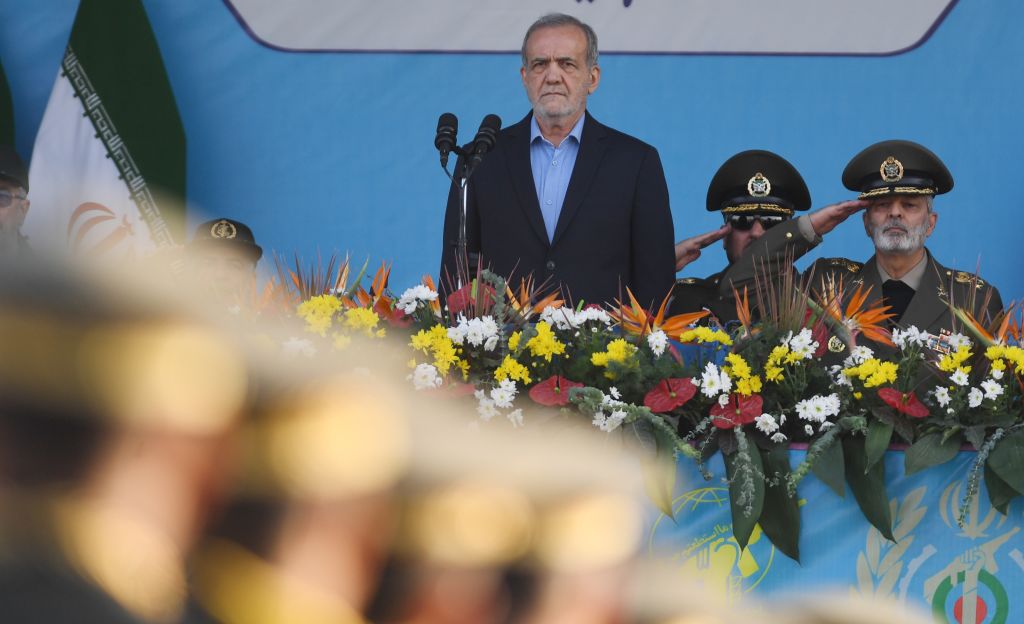
To say that a lot has changed in the Middle East since President-elect Donald Trump last occupied the Oval Office would be an understatement.
Hamas’ October 7, 2023, attack on Israel sparked a war that has lasted more than a year, and now Iran and its regional allies are on the back foot. In the Gaza Strip, Israel’s ground operations and air campaigns have cost Hamas tens of thousands of fighters, including the terror group’s top military leaders. In Lebanon, Hezbollah—once believed to be Jerusalem’s most formidable foe—reluctantly agreed to a ceasefire in November after months of intensifying Israeli attacks left its missile arsenal decimated and its longtime leader dead. Days later, Tehran’s key state ally, Bashar al-Assad’s regime in Syria, fell to rebel forces.
Yet despite the transformed regional landscape, a longstanding challenge remains: Iran’s nuclear program. As Tehran accumulates enriched uranium with an eye toward weaponization, Trump is keeping all options on the table to thwart the program, members of his transition team told the Wall Street Journal last month, including airstrikes. Actions to curb the Islamic Republic’s atomic ambitions could also include economic pressure and renewed diplomacy.
“He’s always up for the big deal,” John Bolton, Trump’s former national security adviser, told TMD. “This is the guy who wrote the book on the art of the deal. He thinks he can make a deal with anybody.”
Trump’s foreign policy and national security teams will be assessing an Iranian nuclear program that is significantly more advanced than it was when he left office. U.S. estimates currently place the country’s breakout window—the amount of time needed to produce enough highly enriched uranium for a bomb—at one to two weeks. And the latest report from the Office of the Director of National Intelligence on the nuclear program, from November, concluded that Iran had accumulated enough fissile material that, if enriched further, would be enough to furnish more than a dozen nuclear weapons. The agency further assessed that while Iran was not in the process of making a bomb as of September, it had taken steps toward doing so.
As it accumulates fissile material, Iran may also be pushing ahead in its efforts to develop a nuclear-capable missile warhead. U.S. and Israeli intelligence officials are reportedly investigating whether Iran is once again using computer simulations to develop nuclear weapons, as it did prior to temporarily suspending its nuclear research in 2003. In late October, Israel’s airstrikes across Iran targeted buildings in Parchin—a top-secret military base 20 miles southeast of Tehran—now believed to have been used for weaponization research.
Meanwhile, Iranian officials have begun to break longstanding taboos against openly discussing the pursuit of a nuclear weapon. In April, a member of Iran’s parliament warned on X, “If the order is issued, it will be one week before the first [nuclear] test.” If an “existential threat arises,” Iran will “modify its nuclear doctrine,” an adviser to Supreme Leader Ali Khamenei said in November, adding: “We have the capability to build weapons and have no issue in this regard.”
Genuine or not, the threats put Trump—who has repeatedly expressed his desire to avoid a Middle East war—in a tight spot going into his second term. But the incoming administration’s threat of military action, coupled with harsh economic penalties, may be part of a broader strategy to reach another deal with the Islamic Republic six years after Trump himself withdrew from the Obama-era Iran nuclear deal.
The multilateral 2015 Joint Comprehensive Plan of Action, or JCPOA, lifted sanctions on Iran in exchange for the country dismantling portions of its nuclear program, limiting its enrichment activity, and consenting to international monitoring. At the time, the deal was criticized for including provisions that would gradually lift limits on Iran’s enrichment, but it was also scrutinized for what it failed to address: Iran’s sponsorship of terrorist groups across the Middle East.
Trump cited Tehran’s destabilizing activities in the region as one of the reasons for his decision to scrap the deal in 2018, denouncing it as “one of the worst and most one-sided transactions the United States has ever entered into.” He accompanied the U.S. withdrawal with the imposition of “maximum pressure,” a severe sanctions package against Iran and companies doing business with the country.
Over the long term, the policy sought to cripple Iran’s economy and force it into more concessions on its nuclear and missile programs while curbing its support for regional terror. The Islamic Republic’s oil industry was hit particularly hard: Between 2018 and 2019, the country’s oil exports dropped 90 percent. In 2019, Iran’s then-president said the sanctions had cost Iran $200 billion in foreign income and investment.
Iran’s revenue from petroleum exports rebounded significantly under the Biden administration—from $16 billion in net export revenue in 2020 to $37 billion in 2021 and $54 billion in 2022. U.S. officials later acknowledged that Washington had relaxed its enforcement of sanctions in an apparent effort to negotiate a new nuclear deal or, at the very least, a nuclear “understanding,” with Iran. But an agreement never materialized, allowing Tehran to continue to enrich uranium while also reaping the benefits of eased sanctions.
Some analysts worry the incoming administration could fall into the same trap in pursuit of a deal. “The clever thing for Iran to do is to tie Trump up in negotiations while its nuclear program secretly advances,” Elliott Abrams, U.S. special representative for Iran during the first Trump administration, told TMD. “You already hear from Tehran some talk about willingness to negotiate and you see them now talking about increased cooperation with the [International Atomic Energy Agency]. All of this, I think, is meant to say, ‘There are negotiations going, so not only should Trump not attack, he should prevent an Israeli attack.’”
And indeed, the prospect of an Israeli attack on the nuclear program has grown more likely in recent months. The country’s triumph over Hezbollah and direct confrontations with Iran shattered the notion that any major escalation with Tehran or its proxies would prove catastrophic for Israel: “How often have we heard that if Israel strikes Iran, Tehran and its proxies would unite and overwhelm Israel? Or if Israel strikes Iran, a major conventional war will consume the region,” Norman Roule, a former top CIA expert on Iran, told TMD. “Neither happened.”
“People always refer to Hezbollah as Iran’s second-strike capability, and that’s now largely gone,” Abrams said.
It’s unclear whether Israel can significantly degrade Iran’s nuclear program on its own. Some of Tehran’s nuclear sites are buried deeply underground, potentially requiring heavy U.S.-made munitions to reach. The distance from Israel to Iran is also such that a major, multi-wave air campaign would test the limits of the Jewish state’s aerial refueling capabilities. U.S. support in any future military campaign would go far in augmenting Israel’s capabilities—something the incoming administration is likely acutely aware of as it considers its next steps.
“Iran is, to say the least, very much exposed now,” Bolton said. “What happens after the 20th of January? Will the Israelis, on their own, take the initiative to strike the nuclear program?”
Worth Your Time
- Writing for National Review, Yuval Levin outlined what the “Department of Government Efficiency” (DOGE) would need to focus on if it wants to affect serious change. “For all the talk about the DOGE, its basic ambition is still pretty murky,” Levin wrote. “Above all, its champions seem to have in mind dramatically reducing federal spending, sharply curtailing the federal workforce, and fundamentally reforming federal regulatory policy. Only the last of these would be worth the DOGE’s time and attention. The notion that a committee of billionaire tech executives with no political experience is going to massively reduce federal spending by focusing on waste is just the kind of banal delusion that causes Washingtonians to roll their eyes at the whole idea of Musk and Ramaswamy’s endeavor. … A more plausible way to direct the DOGE’s ambition is to aim at the inefficiency our government causes, at least as much as that which it embodies. And this would suggest focusing on federal regulation.”
- Walter Russell Mead argued in his latest Wall Street Journal column that Europe’s geostrategic leadership potential looks pretty bleak. “Sadly, with the exception of the U.S., much of the West is sunk in decline,” Mead wrote. “Europe needs the U.S. more than ever but is less well situated to influence American policy—or to help the U.S. meet our many global challenges—than at any time in decades. … Under the circumstances, it’s easy to understand the schadenfreude with which much of MAGA World regards a weakened and demoralized Europe. … But no matter how satisfying, settling scores isn’t how you make America great again. European decline isn’t good for the U.S. With the axis of revisionists on the prowl, Team Trump will need all the help it can get, and America’s goal must be to resuscitate Europe rather than to dance on its grave.”
Presented Without Comment
Daily Beast: Giuliani Rips Courtroom Sketch Artist: ‘You Made Me Look Like My Dog!’
Also Presented Without Comment
BBC: Trump Jr. Arrives in Greenland After Dad Says U.S. Should Own the Territory
In the Zeitgeist
Peter Yarrow, a member of the folk trio Peter, Paul, and Mary, died Tuesday at age 86. Here’s the group performing their popular cover of John Denver’s “Leaving on a Jet Plane” during an anniversary concert in 1986.
Toeing the Company Line
- In the newsletters: Nick Catoggio broke down Mark Zuckerberg’s pivot on social media censorship and free speech.
- On the podcasts: Jonah Goldberg is joined by Jonathan Rauch on The Remnant to discuss his latest book, Cross Purposes: Christianity’s Broken Bargain with Democracy.
- On the site: Kevin Williamson continues his series on the ATF, examining the agency’s politically minded rulemaking, and Kori Schake argues that we’re not in World War III … yet.
Let Us Know
How should the Trump administration deal with Iran—another maximum pressure campaign or with more optimism to negotiate a deal?




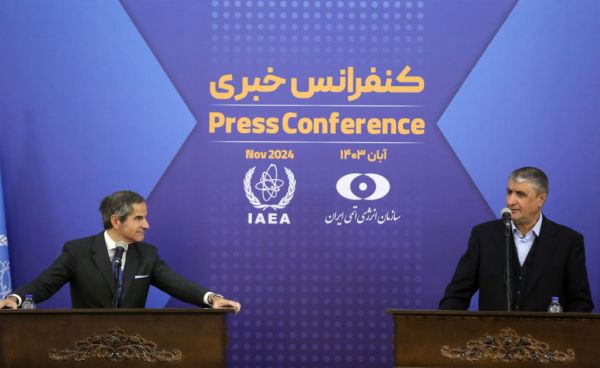
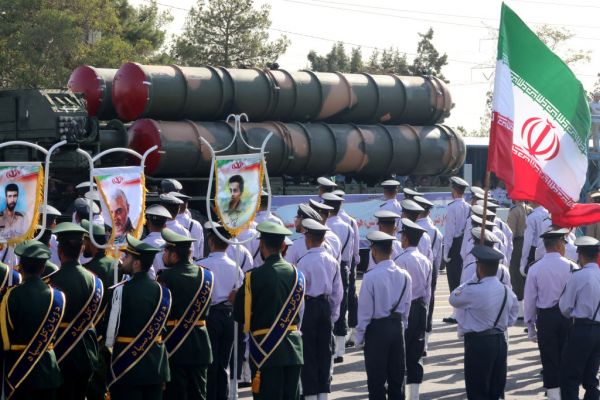



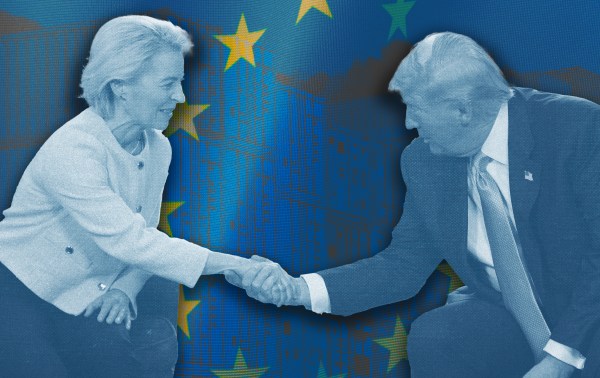
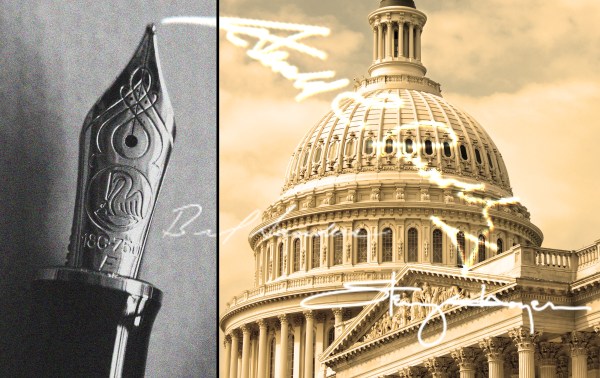

Please note that we at The Dispatch hold ourselves, our work, and our commenters to a higher standard than other places on the internet. We welcome comments that foster genuine debate or discussion—including comments critical of us or our work—but responses that include ad hominem attacks on fellow Dispatch members or are intended to stoke fear and anger may be moderated.
With your membership, you only have the ability to comment on The Morning Dispatch articles. Consider upgrading to join the conversation everywhere.